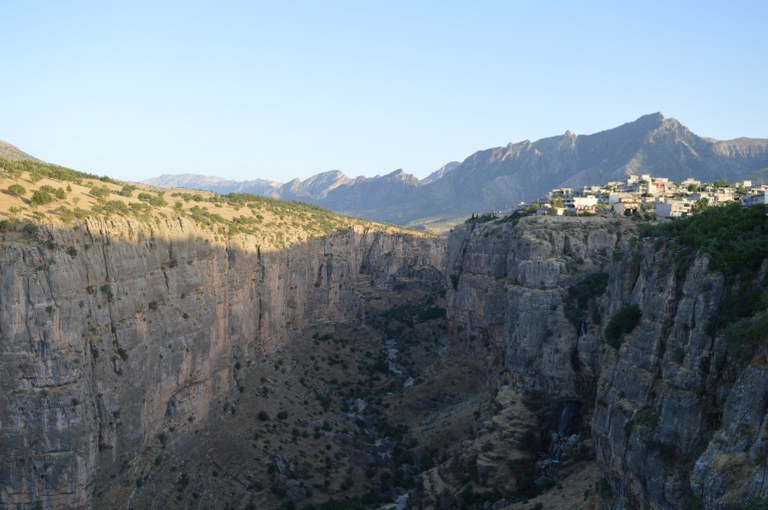On the road against war and for internationalism in action!
The Free Workers Union is currently participating in a large international delegation in the Autonomous Region of Kurdistan (Northern Iraq). The reason for this is the ongoing human rights crimes, military actions and provocations on the part of the Turkish government and the Barzani regime¹, which is close to the Turkish government, as well as the worsening working and living conditions for the workers of the region.
As an internationalist labour union federation, we stand with the workers and peasants all over the world against the Turkish dictatorship, which is covering the whole region of the so-called Middle East with war, destruction of nature and political oppression.
Background
The Turkish regime under dictator Recep Tayyip Erdoğan pursues a policy of annexation and ethnic cleansing². The biggest counterweight against this racist war policy is the communalist movement³. This movement is organized in Turkey, Syria and Iraq and is mainly supported by Kurds, but also Yezidis, Arabs, Turkmens, Assyrians and members of many other communities as a multi-ethnic project.
In Iraq, Turkey is currently attempting to take control of the retreat areas of communalist organizations, as well as border areas with the communalist-administered region of northern and eastern Syria (also known as Rojava). Thus, it regularly carries out bombardments on Iraqi territory against alleged or actual revolutionaries. Furthermore, the Barzani clan and the Turkish state are expanding their military presence in these areas. In recent months, over 40 military bases have been established and thousands of soldiers have been deployed to the region.
With the current attacks and air strikes, Turkey is trying to provoke an intra-Kurdish war between communalists and the Barzani regime, which is economically dependent on Turkey. This tactic aims to weaken Kurdish resistance to Turkey, cut off supply routes to northeastern Syria, and legitimize a Turkish occupation of parts of Iraq.
Communalists and syndicalists worldwide hand in hand
The world community is currently facing dramatic problems that cannot be postponed. The climate catastrophe, the strengthening of dictatorships like China or that of right-wing movements, the expansion of surveillance technology and the economic and health consequences of the Corona pandemic threaten us all.
In order to counter this misery with social and ecological alternatives beyond exploitation and foreign domination, emancipatory forces and social movements worldwide must work together. The frame of reference for our actions must be a global one. For this reason, the FAU sees itself as deeply connected with the communalists of the Middle East, as well as with the Zapatistas in Mexico and the syndicalist unions around the world.
With our presence in Iraq, we want to do our part to stop the Turkish invasions in Syria and Iraq and to support the concept of communalism with international solidarity.
We ask all humanist and internationalist workers and all syndicalist unions worldwide to draw public attention to the conflicts and movements in the Middle East. We ask you to translate texts, educate yourselves in critical solidarity and discuss them with your colleagues and comrades.
In boundless solidarity,
FAU delegation
Erbil, Iraq
June 10, 2021
Notes
¹ The Barzani family holds various high offices in the Autonomous Region of Kurdistan in Northern Iraq (e.g. the office of prime minister and prime minister) and has significant control over the regional economy. Rule-of-law elections have been repeatedly prevented by them.
² Examples include the ethnic cleansing of Kurdish towns in Turkey since 2015, the wars of aggression against the autonomous administration of northern and eastern Syria in violation of international law, and support for Azerbaijan’s war of aggression on Nagorno-Karabakh.
³ Communalist confederalism is a movement committed to the values of grassroots democracy, women’s and minority rights, and ecology, and seeks to place the main social decision-making power on grassroots assemblies and communal committees.
Also available in:
